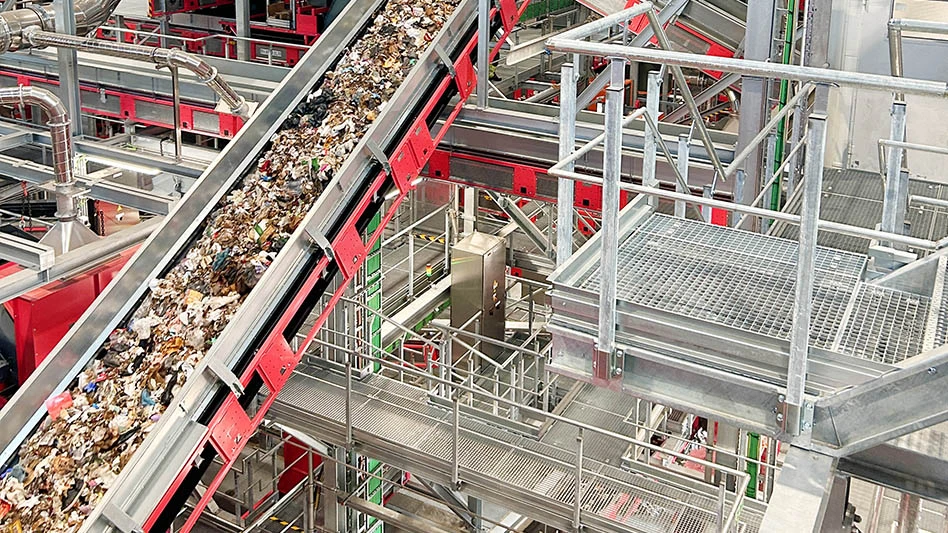
The Solid Waste Association of North America (SWANA) has announced guiding principles and a new technical policy regarding Extended Producer Responsibility (EPR).
The documents address key aspects of EPR policy for products and packaging, with an emphasis on the role of EPR in supporting recycling and reuse systems, promoting safety and enhancing recycling infrastructure and education. As defined by SWANA, EPR is a policy construct that holds that producers are responsible and accountable for the lifecycle of their product.
“SWANA has been engaging in international conversations about the role of EPR, and these new guiding principles will strengthen our position as we advocate to protect the interests and needs of our members in the waste and resource recovery industry," SWANA Executive Director and CEO Amy Lestition Burke says. "EPR policies are advancing rapidly in North America, making it vital that SWANA is at the table in these conversations. We envision SWANA taking a lead as a convener and curator of stakeholder conversations around EPR, especially in terms of how the programs affect and improve safety and the necessity of using and improving the current collection and processing systems.”
The SWANA Sustainable Materials Management Technical Division Advocacy Committee took the lead in developing the guiding principles and the technical policy, which were reviewed and approved by the board of directors on Oct. 19. SWANA technical policies serve as a resource for members and as guiding documents for SWANA’s positions.
“I am so proud of all the SWANA members who spent countless hours to develop the new EPR Technical Policy and Guiding Principles,” SWANA President Tammy Hayes says. “There was a great deal of discussion and respectful debate on the various factors of EPR to make sure a range of perspectives were represented. On behalf of the SWANA Board of Directors, we thank everyone who worked on this. The final documents will guide SWANA advocacy and engagement and will serve as a tool for our members as they engage in EPR conversations in their own work.”
The SWANA EPR technical policy and guiding principles apply to packaging as well as other materials, including household hazardous waste, lithium-ion batteries, sharps, carpets, mattresses, tires, paint and more. They focus on how EPR can promote safety, which supports the SWANA strategic plan’s efforts to “identify and promote worker safety as an additional outcome of Extended Producer Responsibility (EPR).”
The new policies will be discussed at SWANA’s Wastecon during a general session on packaging EPR on Oct. 23, featuring a fireside chat discussion with representatives from Ecomaine, Recycling Partnership, Recology and SC Johnson, moderated by Lestition Burke.
“I am excited to discuss this important topic and SWANA’s role with experts who are engaged with EPR,” Lestition Burke says. “We will hear perspectives from SWANA members as well as from brands with the goal to expand knowledge on the topic to everyone in the industry and to lay a strong groundwork for collaboration into the future.”
Get curated news on YOUR industry.
Enter your email to receive our newsletters.
Latest from Waste Today
- US Senate backs reduced cuts to EPA
- ELV Select Equipment, Reworld aid NYPD in secure firearm disposal
- Waste Connections announces Q2 results
- Returnity and Cosmoprof to address reusable bag waste
- SWANA releases report on aging WTE facilities
- New economic assessment reveals cost benefits of California’s SB 54
- Premier Truck Sales & Rental opens new facility
- TeknTrash Robotics, Sharp Group partner on humanoid robot pilot





